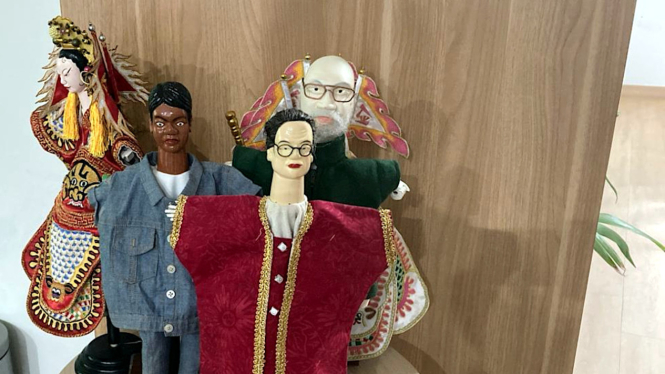Wayang Potehi: A Hybrid Symbol of Indonesian Diversity
- FSI
Jakarta, 24th February 2024 – The Indonesian Sinology Forum (FSI) and the Sanggar Budaya Rumah Cinta Wayang (Cinwa) held a Cap Go Meh seminar themed "Wayang Potehi: Chinese Culture in Indonesianness" in Jakarta. The seminar brought together experts and cultural practitioners to discuss the transformation and role of wayang potehi in Indonesian society.
Wayang potehi, a glove puppet performance originating from China, has undergone a process of indigenization in Indonesia. The performance no longer uses the Chinese language and heavily involves non-Chinese people, making it a hybrid culture that reflects Indonesian diversity.
Johanes Herlijanto, chairman of FSI, emphasized that hybrid Chinese culture with Indonesian values will strengthen the position of ethnic Chinese in Indonesia. The Chinese community needs to continue to develop and popularize this culture as part of the national identity.
"Because the culture that is celebrated no longer shows a foreign Chinese cultural face, but a culture that has become a part of and contains Indonesian values, the Chinese people who are behind this culture will also be increasingly seen as part of the whole Indonesian nation," Johanes said in his statement at the seminar.

The Chinese observer who teaches at the Department of Communication Studies at Pelita Harapan University also believes that the public's perception of the Indonesianness of ethnic Chinese will be further strengthened along with the development of Chinese culture with an Indonesian face, which is even celebrated together by all Indonesian people.
Professor Josh Stenberg, a Chinese cultural expert from the University of Sydney, Australia, explained that wayang potehi has become a "post-ethnic" phenomenon. According to him, among the people involved in the wayang potehi performance, including those who perform it, there are a large number of non-Chinese people.
Therefore, Professor Stenberg believes that although it originated from China, it is no longer performed using the Chinese language, and has contained various elements that are no longer Chinese.
"Potehi has become completely Indonesian. This performance is not an ambassador for ethnic Chinese culture, but a symbol of inter-ethnic culture," he concluded.
Dwi Woro Retno Mastuti, a lecturer at the Faculty of Cultural Studies, University of Indonesia, who is also a Wayang Potehi Activist and Founder of Rumah Cinta Wayang (Cinwa), explained that wayang potehi is one of the performing arts of Peranakan Chinese Javanese puppets, which is usually held in various temples on the island of Java as part of the ritual activities of Kong Hu Cu followers.

According to the founder of the Sanggar Budaya Rumah Cinwa, potehi usually tells various myths and legends from China, such as Sie Jin Kwi, Sam Kok, San Pek Eng Tai, and Li Si Bin. Interestingly, said the woman who is akrab disapa as Ibu Woro, the stories above are written in Javanese script. This makes Mrs. Woro support the view that potehi is no longer a Chinese culture alone, but has become an Indonesian culture.
"Potehi is already a part of the Indonesian nation, you know, part of the diversity that makes Indonesia. Because the language is Indonesian, the players are Indonesian, the craftsmen are Javanese, the supporters are young Indonesian children," she said.

































